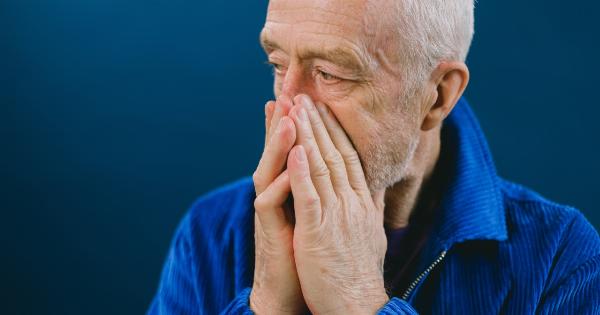No one likes to deal with stress, but did you know that it could be impacting your hair health as well? Stress is an inevitable part of life and can have numerous negative effects on your body, including your hair.
From hair fall to dull and lifeless locks, stress can significantly impact the quality of your hair. In this article, we will explore how stress affects your hair and what steps you can take to minimize its damaging effects.
1. Understanding the hair growth cycle
Before diving into how stress affects your hair, it is crucial to understand the hair growth cycle. On average, hair grows about half an inch per month, with a growth phase that lasts anywhere between two to six years.
This growth phase is followed by a resting phase, after which the hair falls out naturally and is replaced by a new hair strand.
2. Hair fall as a result of stress
Stress can disrupt the natural hair growth cycle and lead to excessive hair fall. When you undergo a stressful event, your body releases a hormone called cortisol, commonly referred to as the stress hormone.
Elevated cortisol levels can push your hair follicles into a prolonged resting phase, preventing new hair from growing and causing existing hair to fall out prematurely. This condition is known as telogen effluvium.
3. Weakened immune system affects hair
Chronic stress weakens your immune system, making it more susceptible to infections and diseases. These infections can also affect your scalp, leading to conditions such as dandruff, scalp psoriasis, or seborrheic dermatitis.
These conditions not only cause discomfort but can also damage your hair follicles, leading to hair fall.
4. Reduced blood circulation
Stress causes your blood vessels to constrict, resulting in reduced blood circulation throughout your body, including your scalp. Adequate blood flow is essential for delivering essential nutrients and oxygen to your hair follicles.
When this supply is compromised, your hair follicles receive less nourishment, leading to weaker and thinner hair strands.
5. Impact on the hair’s moisture balance
Stress can disrupt the natural moisture balance of your hair, leaving it dry and brittle. When you are stressed, your body produces more cortisol, which can deplete the natural oils that keep your hair moisturized.
This lack of moisture can lead to increased hair breakage and split ends.
6. Trichotillomania and stress
In some cases, extreme stress can lead to a condition known as trichotillomania. This condition causes individuals to have an irresistible urge to pull out their hair, leading to noticeable hair loss and bald patches.
Trichotillomania often serves as a coping mechanism for individuals experiencing high levels of stress or anxiety.
7. Stress-related lifestyle factors
Stress often leads to unhealthy lifestyle habits such as poor diet, lack of exercise, and inadequate sleep. These factors can further impact the health of your hair.
A balanced diet, regular physical activity, and sufficient sleep are essential for maintaining healthy hair. Stress-induced lifestyle changes can deprive your hair of essential nutrients, resulting in various hair problems.
8. Coping mechanisms for stress-induced hair problems
While it may be impossible to completely eliminate stress from your life, there are several coping mechanisms you can adopt to minimize its negative impact on your hair:.
a) Practice stress management techniques: Engage in relaxation techniques such as meditation, deep breathing exercises, or yoga to lower stress levels.
b) Prioritize self-care: Set aside time for yourself and engage in activities that help you relax and unwind.
c) Maintain a healthy lifestyle: Eat a well-balanced diet rich in nutrients, exercise regularly, and ensure you get sufficient sleep.
d) Seek professional help: If you find it challenging to manage your stress levels on your own, consider seeking therapy or counseling.
9. Hair care tips for stress-induced hair problems
In addition to adopting stress management techniques, certain hair care practices can help mitigate the damage caused by stress:.
a) Gentle handling: Avoid excessive brushing, combing, or styling, especially when your hair is wet, as it can lead to hair breakage.
b) Use mild products: Opt for gentle, sulfate-free shampoos and conditioners to avoid further drying out your hair.
c) Avoid heat styling: Limit the use of heat-styling tools like straighteners and curling irons, as they can damage your already stressed hair.
d) Deep conditioning treatments: Use nourishing hair masks or oils to replenish moisture and strengthen your hair.
10. Conclusion
Stress is an inevitable part of life, but its impact on your hair can be detrimental. From excessive hair fall to dry and brittle locks, stress can ruin your chances of having healthy hair.
Understanding the effects of stress on your hair allows you to take preventive measures and adopt coping mechanisms that minimize its negative impact. By managing stress and caring for your hair with adequate lifestyle changes and proper hair care practices, you can help restore and maintain the health of your hair.






























